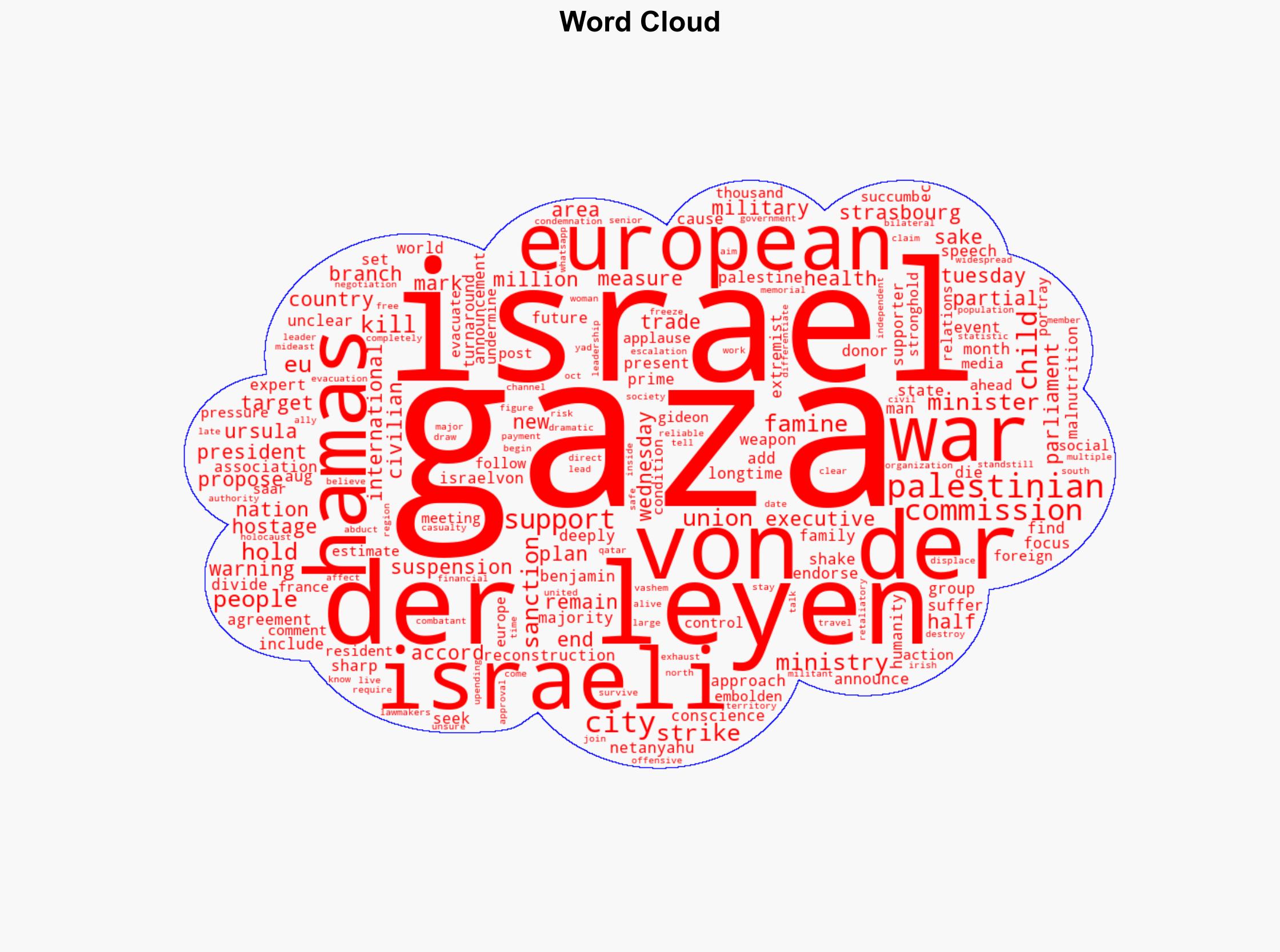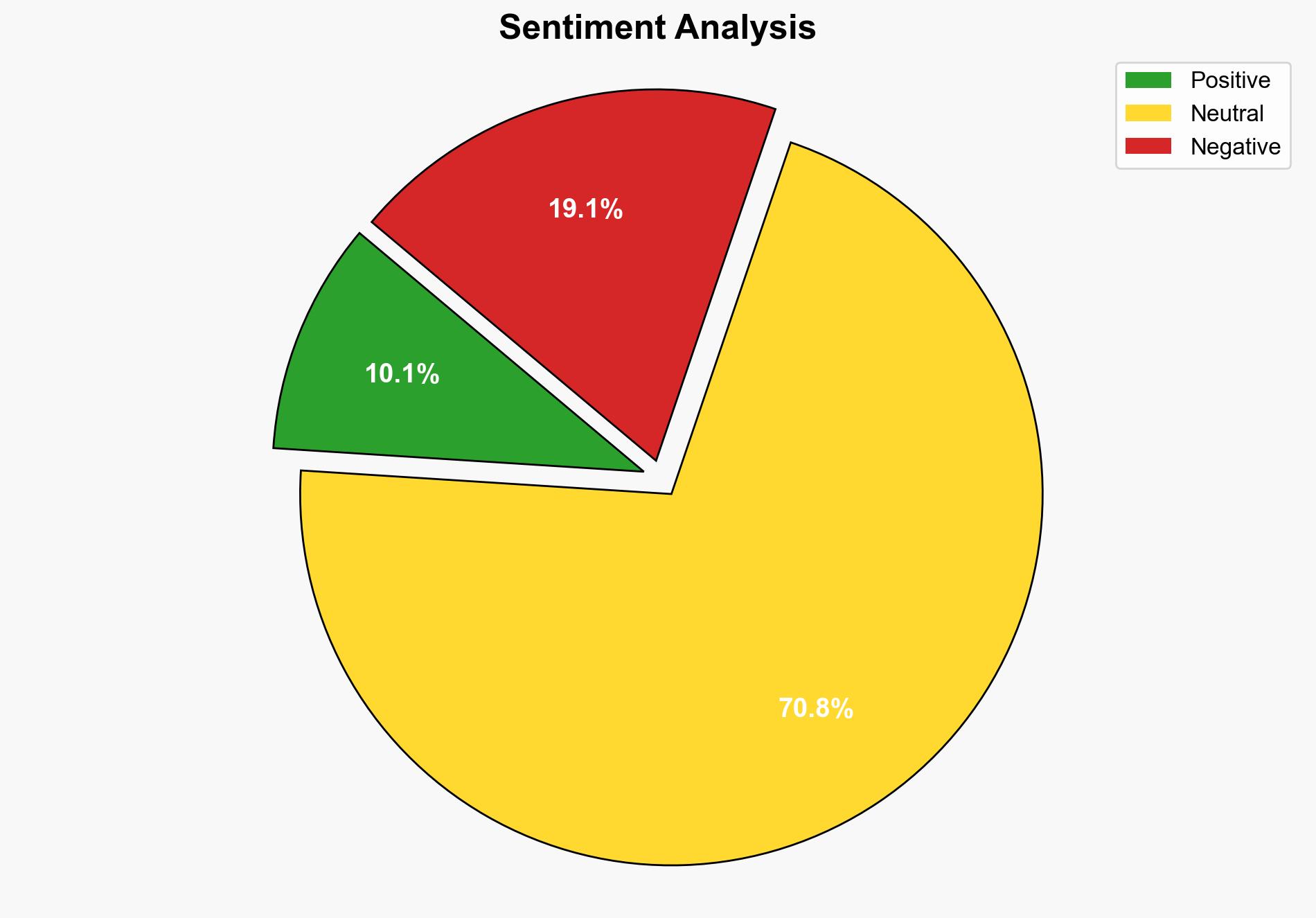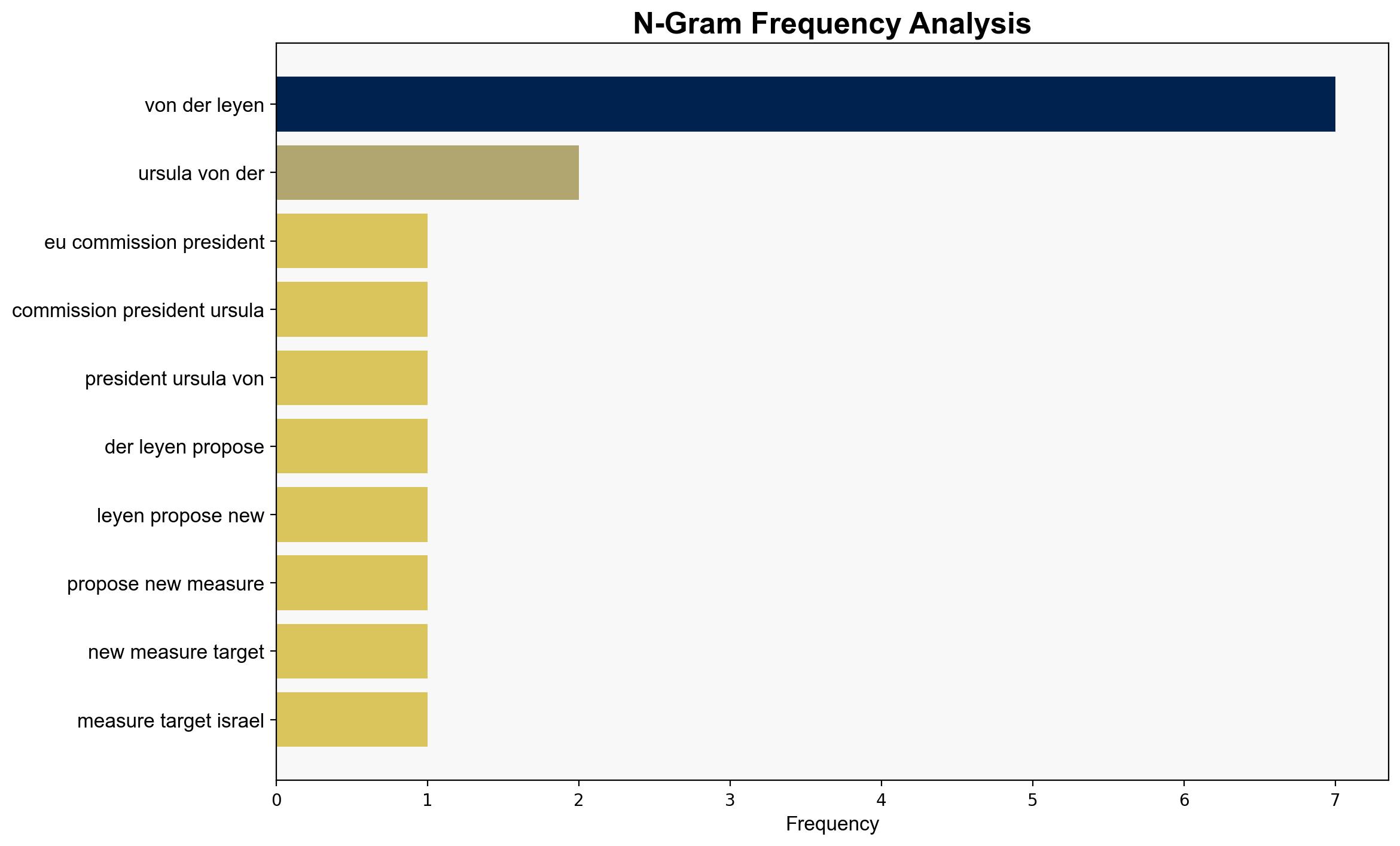EU Commission President Ursula von der Leyen says she will propose new measures targeting Israel – Independent.ie
Published on: 2025-09-10
Intelligence Report: EU Commission President Ursula von der Leyen says she will propose new measures targeting Israel – Independent.ie
1. BLUF (Bottom Line Up Front)
The most supported hypothesis is that Ursula von der Leyen’s proposal to sanction Israel is a strategic move to address humanitarian concerns in Gaza and align EU policy with international human rights standards. Confidence level: Moderate. Recommended action: Monitor EU member states’ responses and prepare for potential shifts in EU-Israel relations.
2. Competing Hypotheses
1. **Humanitarian-Driven Sanctions Hypothesis**: The proposal for sanctions and partial trade suspension is primarily driven by humanitarian concerns over the situation in Gaza, aiming to pressure Israel into altering its military actions and policies.
2. **Political Pressure Hypothesis**: The proposal is a result of internal EU political pressure and a strategic realignment to appease member states critical of Israel’s actions, rather than a genuine shift in von der Leyen’s stance.
Using ACH 2.0, the humanitarian-driven hypothesis is better supported due to von der Leyen’s emphasis on Gaza’s humanitarian crisis and the EU’s historical focus on human rights. The political pressure hypothesis is less supported but plausible given the EU’s divided stance on Israel.
3. Key Assumptions and Red Flags
– **Assumptions**: It is assumed that von der Leyen’s proposal will gain sufficient support from EU member states. Another assumption is that the sanctions will effectively influence Israeli policy.
– **Red Flags**: The EU’s internal division on Israel could undermine the proposal’s implementation. The lack of clarity on the specific measures and their enforcement is a potential blind spot.
– **Cognitive Bias**: Confirmation bias may affect interpretations, especially if analysts focus on von der Leyen’s past support for Israel.
4. Implications and Strategic Risks
– **Geopolitical Risks**: Sanctions could strain EU-Israel relations, potentially affecting trade and diplomatic ties.
– **Economic Impact**: Partial trade suspension may have economic repercussions for both EU and Israeli markets.
– **Escalation Scenarios**: Increased tensions could lead to further regional instability, impacting ongoing negotiations and humanitarian efforts.
– **Psychological Dimensions**: The proposal may embolden groups within the EU advocating for stronger actions against Israel, influencing public opinion and policy.
5. Recommendations and Outlook
- Engage in diplomatic dialogues with EU member states to assess support levels and potential opposition to the proposal.
- Prepare contingency plans for potential economic impacts resulting from trade suspensions.
- Scenario Projections:
- Best Case: Sanctions lead to constructive dialogue and policy changes in Israel, improving humanitarian conditions in Gaza.
- Worst Case: Sanctions exacerbate tensions, leading to retaliatory measures by Israel and further regional instability.
- Most Likely: Partial implementation of sanctions with limited immediate impact, but significant long-term diplomatic consequences.
6. Key Individuals and Entities
– Ursula von der Leyen
– Gideon Saar
– European Commission
– Israeli military
– Hamas
7. Thematic Tags
national security threats, humanitarian crisis, EU foreign policy, regional stability





